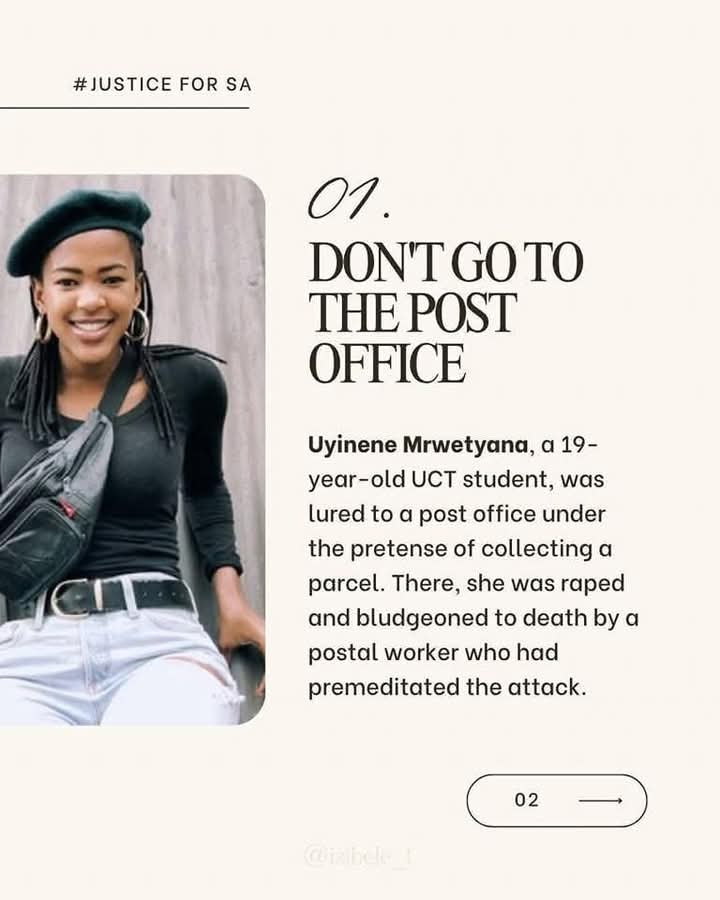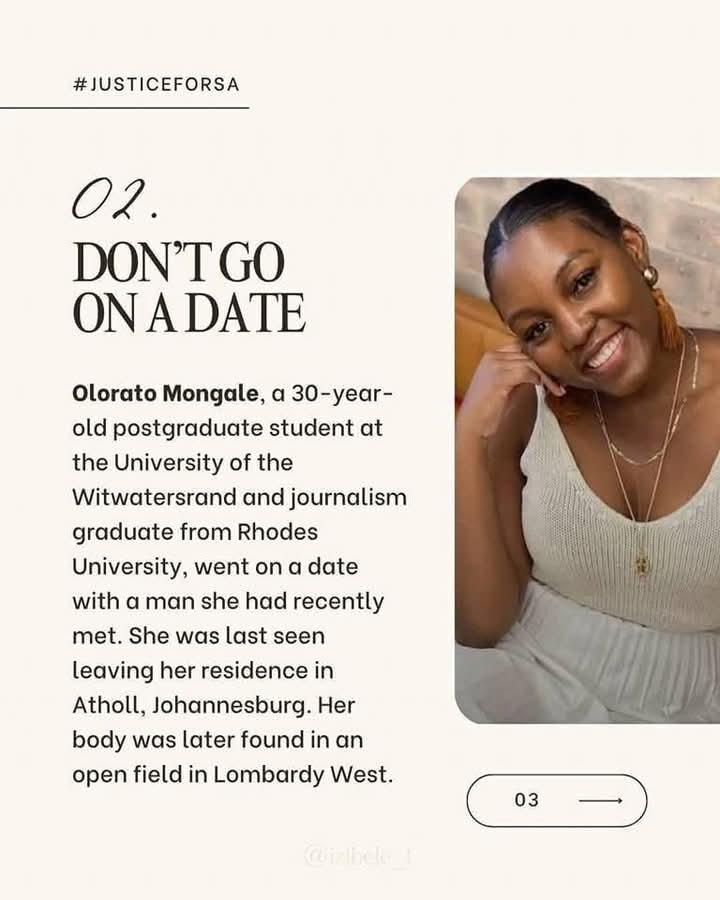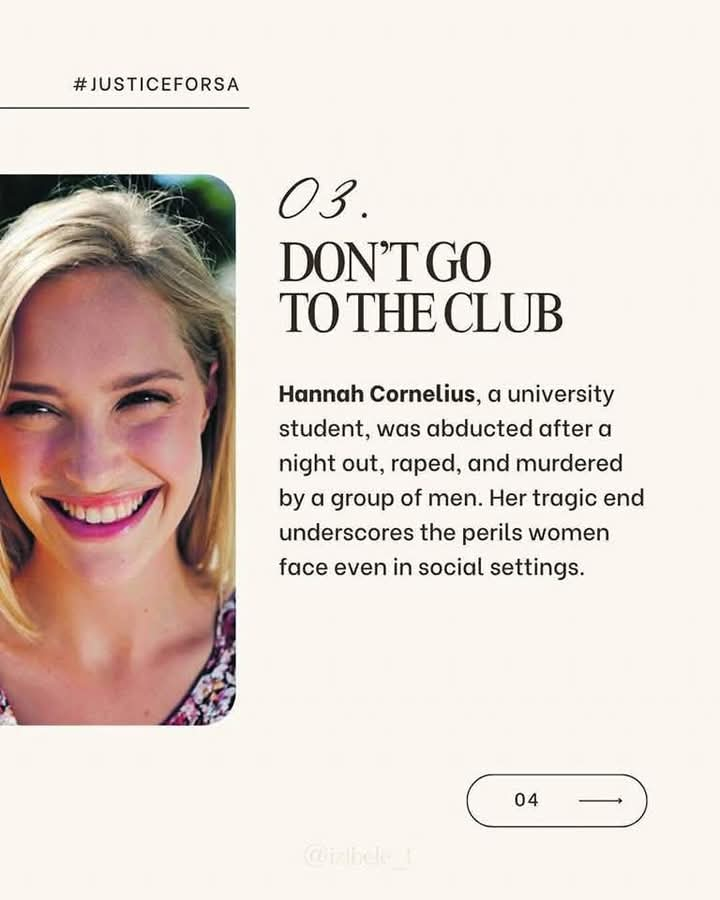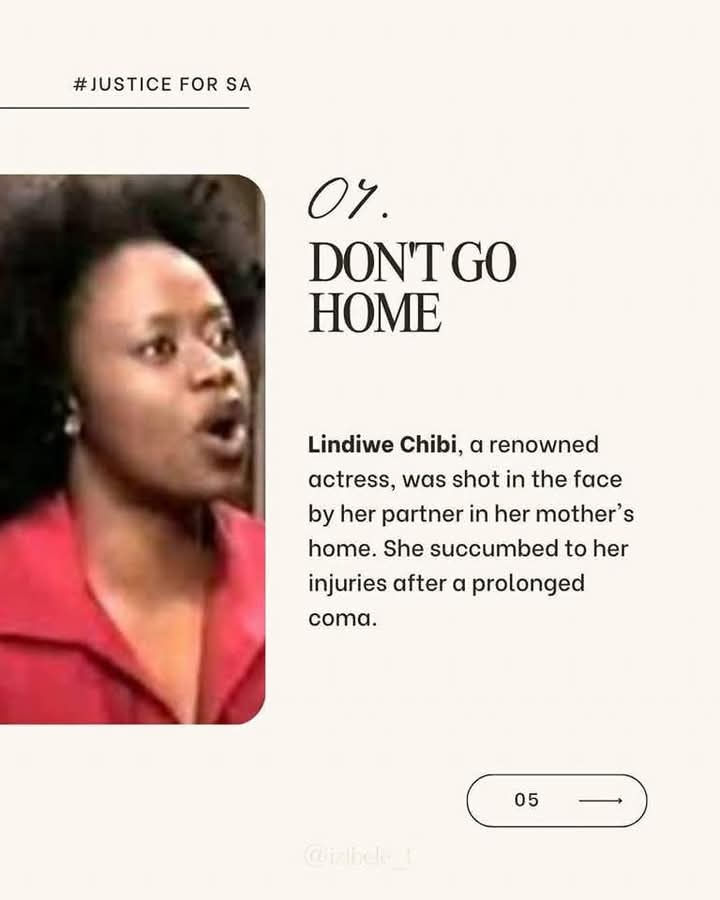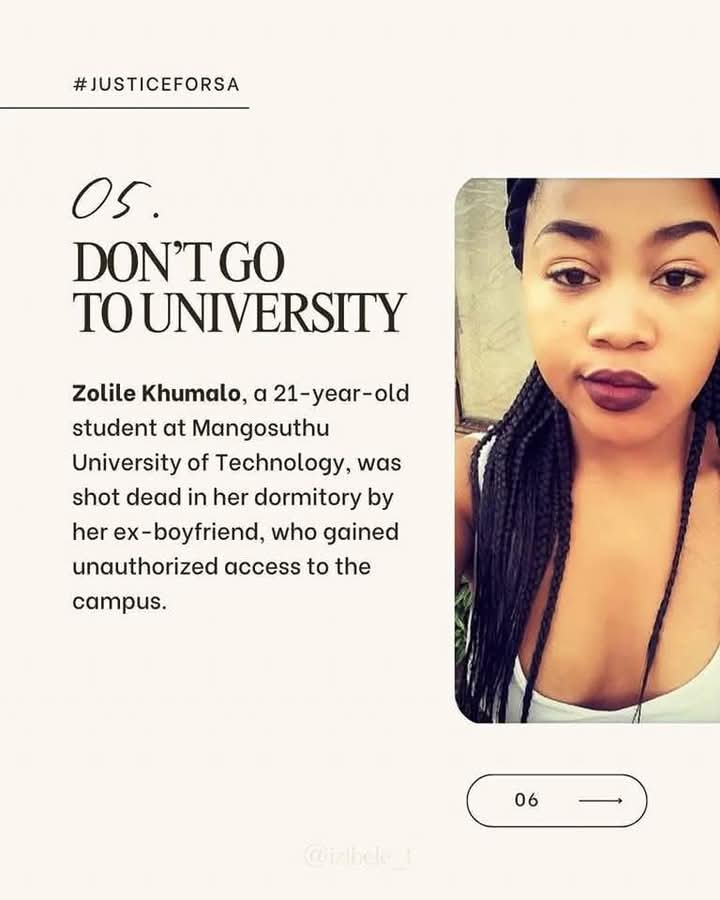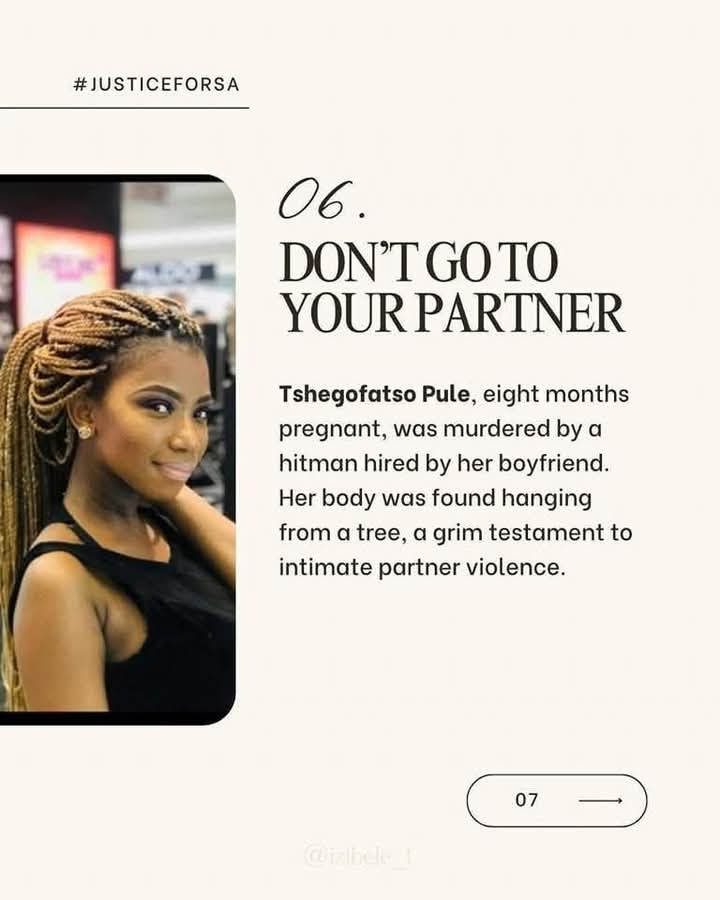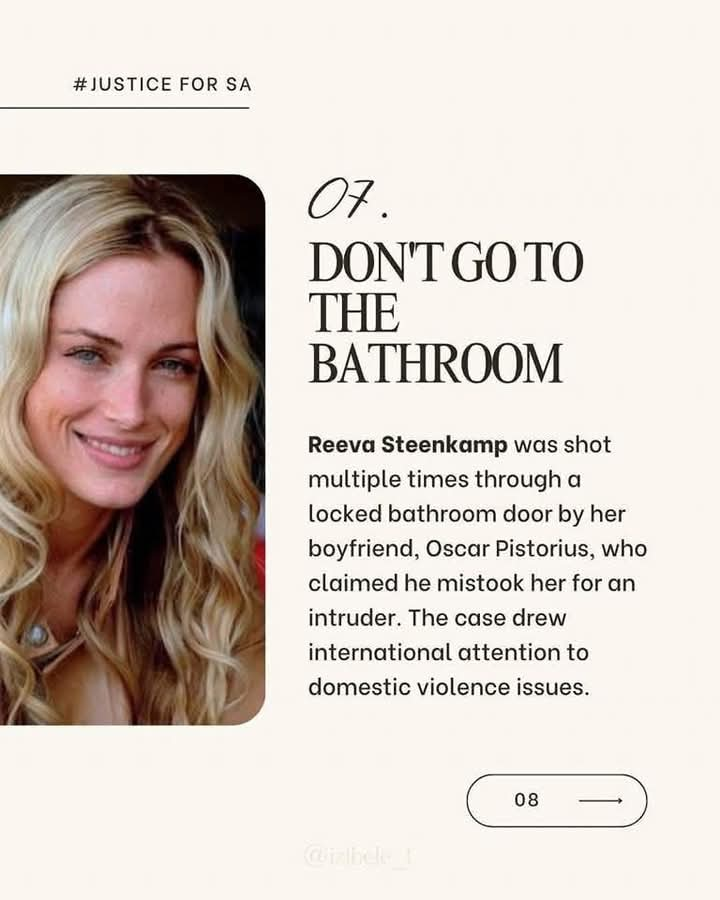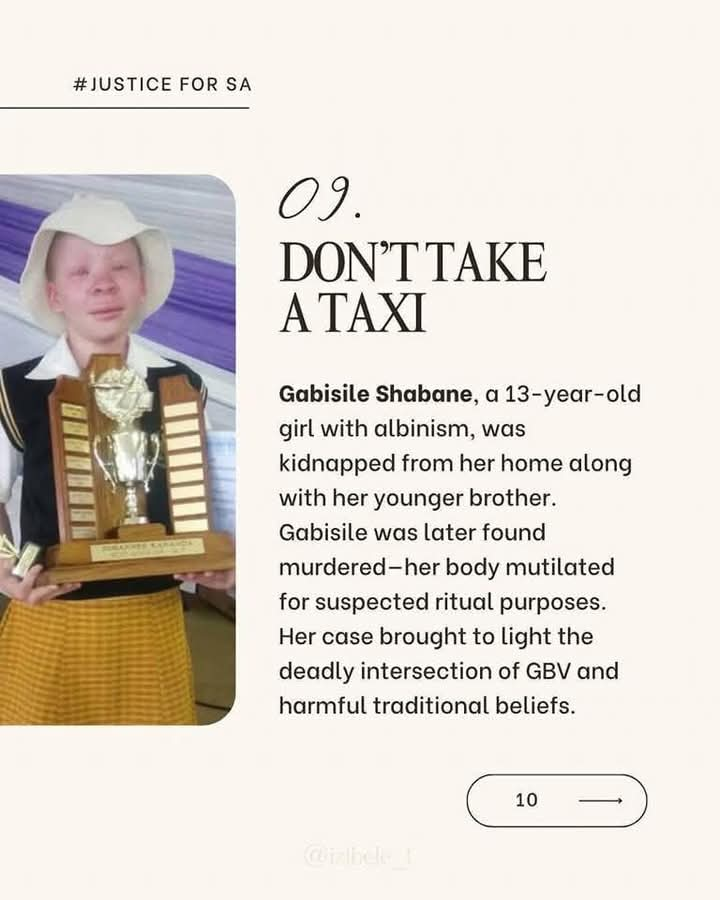South Africa continues to win its war against its number one enemy, which is women and children. Men sent on this mission are excelling and have improved their killing strategy, much to the amusement of the lawmakers sitting in parliament, whose lack of implementing the ultimate penalty for women and children’s murderers can only be defined as approval of the murders.
Cwecwe’s rapist has been protected and may never be found.
Forget about Cwecwe and many other victims previously; let’s talk about Olorato Mongale, who was murdered despite all the safety precautions she took. Even though the police gave Olorato’s murderer an easy pass to hell, such people deserve to see and experience death while they are still alive, #DeathRow.
The South African government does not have the luxury to discuss or debate the death penalty. Today is Olorato, next week it is someone else. The time for debates and discussions expired when Uyinene was murdered! Right now, we just have a bunch of parliamentarians who enjoy every breath squeezed out of a woman.
Credit to General Mkhwanazi, whose police force does not have handcuffs to play kinky games with criminals. They send them to hell.
Human Rights are reserved for humans, not for animals. When a family dog makes the mistake of biting a child, that dog is put down very quickly. Why does South Africa keep feeding and protecting dogs that kill women and children? The dead guy, whose name is not worth mentioning on this platform, was arrested for kidnapping and other forms of crimes against women. But the glorious law system of South Africa released him to the public to kill Olorato. The South African government is standing as accused number one in the murder and rape of all women and children until they implement death penalty against such crimes.
“Durban has become extremely dangerous, Nigerians are injecting us with drugs in broad daylight to kidnap, rape and rob us.” Said a horrified DUT student. “My friend walked past a Nigerian who greeted her, she refused to interact with him, only to pass another Nigerian guy who touched her arm with something, when she started feeling dizzy, she rushed to the taxi rank, got onto the taxi, and that’s when she passed out, the taxi drivers rushed her to the hospital and that is how she was saved,” concluded the DUT student.
The war on women does not come through a particular nationality, it is all around. The very same men shouting #Justice for the victims could be the next killer, and that is the scariest part.
Here are the Personal Safety Strategies:
- Awareness: Be aware of surroundings, trust instincts, and avoid risky areas when possible.
- Boundaries: Teach children and women to assert boundaries and recognize inappropriate behavior, even from trusted people.
- Self-Defense Skills: Learn basic self-defense techniques or martial arts to build confidence and practical skills.
- Safe Transport: Use verified, trusted transport options; avoid hitchhiking or isolated areas.
- Technology Tools: Use location-sharing apps with trusted people; carry a charged phone with emergency contacts.
Education and Empowerment
- Consent Education: Teach both children and adults about consent, bodily autonomy, and respect.
- Open Communication: Encourage open, judgment-free conversations at home about relationships and safety.
- Recognizing Red Flags: Teach the signs of manipulation, grooming, and abusive behavior.
- Safe Adults and Networks: Identify trusted people children can go to if they feel unsafe.
Emergency Response
- Call for Help: Know how to quickly contact the police or local emergency services.
- Code Words: Families can establish code words that children use to indicate they feel unsafe.
- Escape Plans: Have a plan in place at home or school for what to do if someone threatens harm.
If You’re in Immediate Danger
Call local emergency services or a trusted person for help. If you don’t feel safe to call, try to send a coded message to someone you trust.
For Parents and Guardians
- Start conversations early about body safety and boundaries.
- Supervise online activity and be cautious of strangers met online.
- Watch for changes in behavior that might signal abuse.
Remember: It’s never the fault of the victim if something happens. Prevention focuses on reducing risk, but the responsibility for violence always lies with the perpetrator.
1. Safety Apps and Self-Defense Resources
These tools can increase personal security and emergency preparedness:
Safety Apps
- bSafe: Sends emergency alerts to pre-selected contacts with location tracking.
- Noonlight: Connects users to emergency services discreetly.
- Circle of 6: Quickly contacts trusted friends for help.
- Life360: Family locator app for sharing location and emergency alerts.
- Namola (for South Africa): Quick emergency response app with location sharing.
Self-Defense Resources
- Krav Maga: Practical self-defense focusing on real-world situations.
- Empowerment Self-Defense (ESD): Tailored for women and children, focusing on awareness, de-escalation, and physical skills.
- Local Workshops: Many communities offer self-defense classes – check with local gyms, community centers, or women’s organizations.
- YouTube Channels: Search for reputable self-defense instructors for free lessons.
RIP, QUEENS, AS A PUBLICATION, WE ARE DISGRACED BY HOW YOUR LIVES WERE CUT SHORT! YOUR NAMES AND FACES SHALL BE ENGRAVED ON THE HEARTS AND MINDS OF THOSE WHO ARE DECIDING TO FIGHT THE SCOURGE OF WOMEN AND CHILDREN ABUSE AND MURDER.

